Online Anxiety Counseling | Top Therapist For Anxiety
- Affordable and confidential online Anxiety counseling sessions
- Video calls or chat sessions with Counsellors/ Psychologists specialized in Anxiety issues
- Improve your mental wellbeing whenever and wherever you want
Begin Therapy
Consult online with best Therapist
"*" indicates required fields
A ‘Better’ Model for Anxiety Counseling
Mantracare is with you on the journey to heal your anxiety issues. We will help you right from knowing the root causes of your anxiety issues to learning healthy coping mechanisms. Our therapies are 100% online and are conducted via video call or messages. So, feel free to take sessions wherever, whenever you need it
Specialized Therapists
As per your story and case, we assign the best counselors experienced in anxiety issues. They work with you proactively to understand and address the root cause of your Anxietyproblems, hopelessness, and persistent sadness.
Affordable & Effective
We believe that therapies should be driven more by “Need” than “ability to pay”. Our online sessions are 90% less expensive than face-to-face therapy. Online counseling starts at just $10.
Anxiety Self Care
We provide you continuous Anxietyhelp with self-care tools, mental healing videos, chat groups, meditations, breathing exercises and more. Our therapists are available 24/7 via messages to provide care, whenever and wherever you need it.
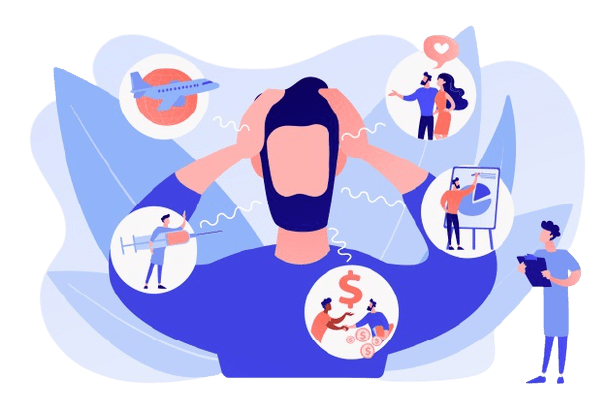
Best Anxiety Counseling, Now in Your Pocket
Our therapists our counselors are available in all parts of the world, accessible via an easy-to-use mobile application. Our matching experts take your preferences into consideration and connect you with therapists specializing in anxiety issues. Moreover, there are hundreds of free self-help tools on our app, available 24×7.
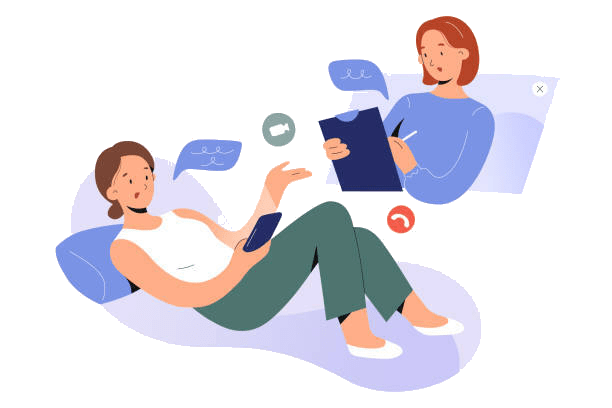
How It Works
After filling out our questionnaire, you will be matched with a anxiety counselor based on your needs and preferences. You and your counselor will get your own secure and private “therapy room” where you can message your counselor at any time wherever you are. You can also schedule a session so speak live with your counselor over video or phone.
You can write or talk about Family, the things going on in your life, ask questions, and discuss the challenges you’re facing and your counselor will provide feedback, insights, and guidance. Together you’ll work towards making a positive change in your life, accomplishing your goals, and overcoming your Family.

Signup for Anxiety Counselling
Just fill up a 5-minute online form to tell us about your anxiety issues and treatment expectations.

Meet your Therapist
Based on your preferences and neet, we will connect you with Anxietycounselors that are available 24/7 to you via call or chat.
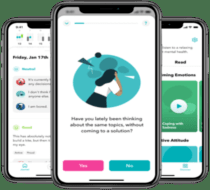
Connect to our app
Heal yourself with video or chat counseling sessions available in the app. Access helpful self-care tools on our app to help you heal your Family, and take control of your life
Meet the best Anxiety Therapists
MantraCare psychologists help you counter Anxietythrough a combination of positive conversations, exercises, and meditations. Our AnxietyCounselling services are better than traditional face-to-face counseling in multiple ways:
- Over 5,000 counselors & therapists with expertise in anxiety and other areas
- All counselors are licensed, trained, accredited and highly experienced
- Match with an available counselor who is the best fit for your Anxietyneeds
- Unlimited private one on one communication with your therapist
- Gain access to constructive, educational group webinars on Family
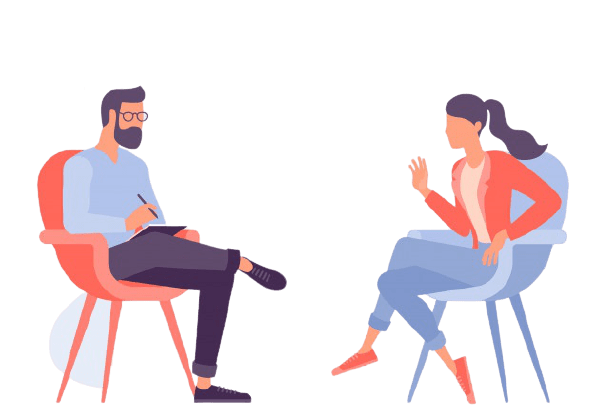
A Guide on Anxiety Disorders
Understanding Anxiety
Anxiety is a normal emotion that may occur in people when they are stressed. The condition of the brain depends on how you react to situations that come to you. One can experience anxiety while giving an important test, or taking a life decision. It is okay to have occasional anxiety, but you may need to take therapies or need to see a doctor when it gets recurring. This anxiety makes you avoid attending your school, office, or even Anxietyget-together. If we see the positive side of anxiety, it warns us of a dangerous situation and enables us to focus our attention in one place. But if it goes beyond nervousness, it gets harmful. It turns into a disorder when:
- It starts interfering with your ability to function.
- You start overreacting when something or somebody triggers your actions.
- You start losing control of your responses towards the situations.
Various studies say that anxiety disorder is one of the most common forms of mental disorders. 30% of the adults go through anxiety due to work, relationships, finance, psychosocial, and many other reasons. Fortunately, there are treatments available for the betterment of people who are suffering from anxiety and are unable to overcome the issue. The first move should be to figure out the type of anxiety disorder that you are facing so that you can take the appropriate treatment or therapy.
Types of Anxiety Disorders
There are 8 prominent types of anxiety disorders that people may have:
Generalized Anxiety Disorder
It is a situation that includes persistent anxiety and worries about activities, people, or even events. Most significant is the fact that the worry is out of proportion and is irrelevant to the circumstance. It is difficult to control and puts a great impact on a person’s physical well-being. It generally leads to depression and if you do not take any timely treatment, the situation worsens and the anxiety becomes chronic.
Agoraphobia
It is a type of anxiety disorder that makes people care and avoid going to places or taking situations that may cause panic and you feel trapped, helpless, or embarrassed. People suffering from agoraphobia love to be isolated as they feel safe there.
Anxiety Due To Medical Condition
Sometimes we come across people who have suffered some traumatic accident in life and now they are trying to overcome the same. Such incidents cause anxiety in such people and make them fear the situation for a long time. It also includes symptoms of intense anxiety and panic.
Panic Disorder
This type of anxiety disorder involves repeated episodes of sudden feelings of fear which may reach its peak in a short interval of time, say a few minutes. The consequence may be shortness of breath, chest pain, a fluttering or pounding heart. These characteristics may be disturbing when they start occurring again and again and the victim starts to avoid the situations.
Selective Mutism
It is a disorder that marks the consistent failure of children disabling them to speak in certain situations, like school even when they are confident enough to speak in front of their Anxietymembers. This can have an adverse effect on their performance in school, and work in the longer run. It can also have an impact on their social functioning.
Anxiety Disorder Due To Separation
It is the type of childhood disorder that can be categorized by a type of anxiety that occurs in children due to the fear of separation from their parents and other guardians who have parental roles in their life.
Social phobia
This type of anxiety disorder involves high levels of avoidance of social situations like Anxietyget-togethers or hanging out with friends. It happens due to the feeling of embarrassment, self-consciousness, and worry about being judged negatively by the other members of the group.
Specific phobias
This situation is characterized when anxiety happens due to the exposure of a specific thing or a person with whom they have a traumatic situation. Such phobias are known to provoke panic attacks in some people. People can have these specific phobias from various things, like water (hydrophobia), closed areas (claustrophobia), height, etc. These are all the different types of anxiety disorders that a person may experience in life. To get over the different types of anxiety disorders, one must monitor his activities to know the symptoms in a better manner.
Symptoms of Anxiety Disorder
The most prevalent symptom of anxiety is excessive fear. This can also make it challenging for a person to breathe, sleep, and concentrate on his work. These symptoms may vary on the basis of the type of anxiety disorder that he is suffering from. The most common symptoms of anxiety disorder are as follows:
- Panicking and getting frightened over things that are normal.
- Experiencing an unusual uneasiness while interacting with people or socializing.
- Feeling of danger in a room filled with people
- Facing sleep problems, even after a tiresome day.
- Not being able to stay still and calm
- Tingling in the fingers, or having the body numbed, cold, or sweaty.
- Feeling shortness of breath and chest pain
- Breathing faster than the normal speed, often called hyperventilation.
- A pounding and fluttering feeling in the heart
- Feeling dryness in the mouth and excessive thirst.
- Inability to concentrate on the work
- Avoiding certain objects and places obsessively
- Feeling of absurd muscle tension without any injury
These are all the symptoms that a person may suffer from while having anxiety disorders. These symptoms may worsen if not corrected in time. You can use various therapies or consult a psychiatrist or psychologist to get advice on what to do while having these symptoms. Make sure that your psychologist knows your medical history and any evident incident that may have happened. This will help him to know the exact cause of your anxiety and he will be able to suggest the best therapy.
Causes of Anxiety Disorder
Researchers say that there is no exact cause of anxiety. They also mention that any traumatic events can cause anxiety disorders if the person is already prone to anxiety. There are some medical causes that can be linked to anxiety such as:
- Thyroid problems
- Heart Disease
- Anti-anxiety medications
- Brain Chemistry
- Chronic pain
- Rare tumors
- Respiratory Disorders
- Misuse of Drugs
Risk Factors for Anxiety Disorders
Although there are no fixed causes of anxiety, there are some definite risk factors for anxiety. The factors that can risk the development of anxiety are as follows:
Trauma
People who have witnessed any traumatic events in their childhood or have endured abuse are at high risk of developing anxiety disorders. Even if you are someone who is very close to the victim of any trauma, you are at risk of anxiety.
Stress
In today’s life, everyone is dealing with stress. But if it is excessive and unresolved, it can increase the chances of anxiety.
Genetics
Sometimes anxiety can run in your genes. If a family member is having an anxiety disorder, then it can increase the chances of the development of anxiety. The risk is even high if the parent is anxious.
Personality
Some people are more prone to anxiety disorders than others. Like people with type A personalities have a high risk of developing an anxiety disorder.
Gender
It is seen that women have more chances to develop anxiety disorders than a male because of the hormonal changes in their life at different periods of time.
Self- Confidence
When you have very little confidence in yourself or negative perceptions about yourself, this may lead to social anxiety disorder.
Diagnosis of Anxiety Disorder
If you have observed any symptoms related to anxiety, visit a doctor immediately. The doctor will inquire about your health conditions. He or She can examine if the anxiety is related to your physical health by any chance. If there is nothing related to your physical health, you need to visit a psychologist or any other mental health specialist. The psychiatrist will ask you some questions and will test if you have an anxiety disorder. They will examine how intense the condition is after diagnosing you.
If you are having any difficulty in doing work at home, school, or anywhere, You should let your doctor know.
Treatment of Anxiety Disorder
Anxiety Disorder can be treated. The treatment methods are used to manage or reduce the symptoms of anxiety disorder. The most common way to treat anxiety disorder is consulting a psychiatrist or using some medications.
Medications
There are a variety of medications to treat anxiety. Medications are used on the basis of symptoms, type of anxiety disorder, or on the basis of physical and mental health issues. Some of these medications are:
- Antidepressants: These are the most common medicines used for anxiety as well as depression. Some of these antidepressants are Serotonin Reuptake Inhibitors (SSRI), Fluoxetine, Prozac, or Celexa.
- Benzodiazepines: This is a drug that a doctor rarely prescribes to any patient as they are highly addictive. They have certain side effects to them as well.
- Tricyclics: Doctors recommend these drugs for anxiety disorders other than OCD. These can cause certain side effects as well such as drowsiness, dry mouth, etc.
Some other medications are Monoamine Oxidase Inhibitors (MAOIs), beta-blockers, buspirone. If the doctor has prescribed you any of these medications, if the after-effects become severe, consult a doctor.
Therapy
The most important and common method of treating Anxiety disorders is taking therapy. The most common therapy is Cognitive-behavioral therapy (CBT). There are other combinations of therapies as well.
CBT is the most effective psychotherapy which is used for anxiety disorders. CBT is teaching skills to improve the symptoms of anxiety and can do the activities which you are not doing because of anxiety. It includes the encounter of the situation that can cause anxiety. It can build confidence so you can manage the anxiety symptoms.
Other Remedies
Almost everyone needs medications or therapy to control, there are other remedies as well to control anxiety disorders. There are some everyday changes as well that can make a change.
- Avoid Alcohol and drugs
- Avoid Smoking
- Sleep well
- Eat good food
- Avoid caffeine
- Use Stress Management
- Be active
- Keep a journal
- Learn how to manage time and energy
- Socialize with people
- Do yoga and meditation
10,000+ Happy & Healed Anxiety patients

“I was really delighted that I selected Mantra Care after my first session. The therapist was really approachable and helped me feel at ease. I never felt rushed when I was with him since I trusted him with everything I said. He taught me the most important lesson of my life: that I am in charge of my own destiny and that everything is up to me. Every time I left a session, I was blown away by the outcomes.”
Kevin, 1 year on MantraCare
5000+ Anxiety Counselors from across the world





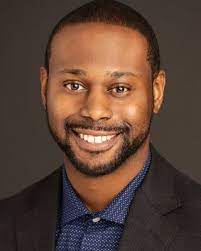
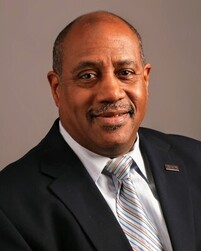
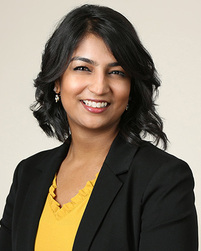
Our therapists take care of your ‘unique’ needs
Not all mental health problems are the same. Different types of problems require different treatments. At MantraCare, 5000+ therapist’s cover a range of specialities to meet your needs:
Frequently Ask Questions
Anxiety disorders are marked by excessive fear or worry, as opposed to typical sensations of uneasiness or anxiety. Anxiety disorders are the most prevalent mental illnesses, afflicting almost one-third of all people at some time in their life.
There are 5 types of most common anxiety diorders:
- Generalized Anxiety Disorder
- Obsessive-Compulsive Disorder (OCD)
- Panic Disorder
- Post-Traumatic Stress Disorder (PTSD)
- Social Phobia (or Social Anxiety Disorder
An anxiety disorder is diagnosed by primary care physicians and psychiatrists when symptoms persist for six months on more days than not and severely impair the person’s ability to perform at home, work, or school.
Doctors conduct physical and psychological examinations to rule out other possible causes of anxiety symptoms. Symptoms that are comparable to those of an anxiety disorder might be caused by cardiovascular illness, thyroid issues, menopause, substance addiction, and/or medication side effects, such as from steroids.
Anxiety disorders are generally treated with psychotherapy, medication, or both.
- Psychotherapy
- Cognitive Behavioral Therapy (CBT)
- Self-Help or Support Groups
- Stress-Management Techniques
- Antidepressants
- Anti-Anxiety Medications
- Beta-Blockers
Therapy can help you figure out what’s causing your concerns and anxieties, learn to relax, see events in new, less scary ways, and improve your coping and problem-solving abilities. Therapy teaches you how to use the skills you’ve been given to overcome anxiety.
Online Anxietytherapy has been proven to have the same effectiveness as in-person therapy. There are multiple reasons why online counselling proves to be better:
No need to travel to a psychologist, sit on the same couch, and talk with the same therapist. Online Anxietytherapy doesn’t require that you leave the comforts of your home or office. Talk to your therapist in your pajamas, sitting on your bed!
Most of us live hectic, unbalanced lives wherein scheduling a traditional therapy session becomes prohibitive. Online Anxietytherapy allows you to set the time, location, and initial direction of the therapeutic relationship. It’s freedom that puts you, the client seeking mental health solutions, first.
We offer a vast array of free self-help tools such as stress & anxiety control exercises, relaxation techniques, mindfulness exercises, and helpful blogs. We also offer mental healing videos, chat groups, breathing meditations, and more, available 24/7 at no charge. However, there is a nominal price for Anxietycounseling. That said, we provide one of the most affordable ways to tackle Anxiety.
The cost of Anxietycounseling through MindMantra ranges from $15 to $40 per week. Unlike traditional in-office therapy which can cost over $150 for a single session, your MindMantra membership includes unlimited text, video, as well as audio messaging.

